14-6. Let's add the heliacal stars,
those
which can be fetched from
my
star list:
 |
 |
 |
 |
 |
 |
|
Eb5-4 |
Eb5-5 (154, 480) |
Eb5-6 |
Eb5-7 (13 * 12) |
Eb5-8 |
Eb5-9 (22 * 22) |
|
22 * 22 = 483 (Eb5-9):

3 * 161 (→
Φ) = 483 → 8 / 6 *
360 + 3 → 360 +
123 (→ Phaistos Disc)
.jpg)
118 (Phaistos Disc) + 365
= 483 = 360 + 123 (Phaistos Disc). |
|
kua oho mai koe |
maitaki |
henua |
ko te Rei |
koia kua hoi - te toka i haga
hia |
te henua -
te kiore |
|
Toka. 1. Any large,
smooth rock in the sea not
covered by seaweeds (eels are
often found between such rocks).
2. To be left (of a small
residue of something, of
sediments of a liquid, of
dregs); to settle (of
sediments); ku-toka-ana te
vai i raro i te puna, there
is little water left at the
bottom of the lake; ku-toka-á
te oone, the sediments have
settled. Tokaga, residue,
remainder; firm, stable
remainder or part of somthing.
Vanaga. A rock under water. P
Mgv.: toka, coral. Mq.:
toka, a bank where the
fishing is good. Ta.: toa,
rock, coral. Tokatagi,
sorrow T. Churchill.
There were
10 days from
Take to
Toka (presumably
a
play on words):
 |
*10 |
 |
|
manu i ruga o te take |
koia kua hoi -
te toka i haga
hia |
|
Aug 31 |
Sept 10 |
|
|
VISIBLE CLOSE TO
THE FULL MOON: |
|
JULY 4
(185) |
5 |
6 |
7 |
8 |
9 (190) |
|
Sept 6 (246 + 3) |
7 |
8 |
9 |
10 |
11 (254) |
|
Al Zubrah-9 (Mane)
/
Purva Phalguni-11 (First Reddish
One - Fig Tree)
ZOSMA (Girdle, not Belt) =
δ
Leonis
(169.2),
COXA (Hips)
=
θ
Leonis (169.4)
*169.4 - *41.4 = *128.0 |
φ
Leonis (170.0),
ALULA
(First Spring of the Gazelle)
=
ξ,
ν
Ursae
Majoris
(170.5),
LABRUM =
δ
Crateris
(170.6) |
σ
Leonis (171.1),
λ
Crateris (171.6),
ι
Leonis,
ε
Crateris (171.9) |
γ
Crateris, π
Centauri (172.0),
κ
Crateris (172.5),
τ
Leonis (172.8)
GREDI (α Capricorni) |
ο¹ Centauri (173.8) |
GIAUZAR = λ Draconis
(174.0), ξ Hydrae (174.3), ο²
Centauri, λ Centauri (174.8) |
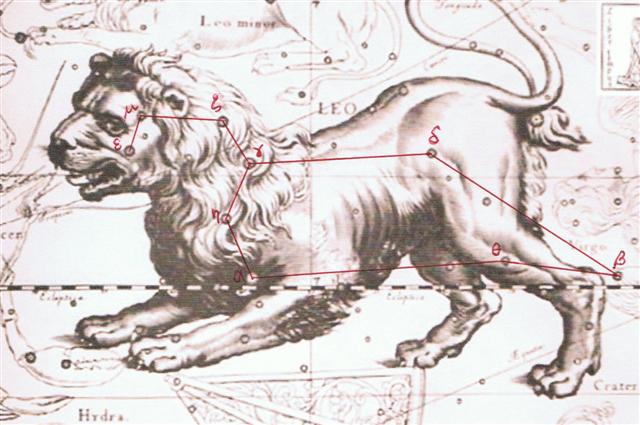
.jpg)
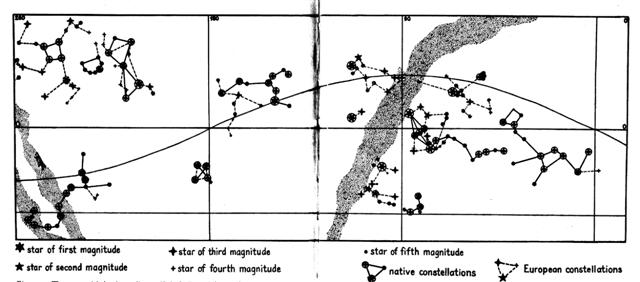 |
|
THE SUN: |
|
Φ Aquarii (352.0), ψ Aquarii
(352.4),
χ
Aquarii (352.6),
γ
Tucanae (352.8)
*311.0 = *352.4 - *41.4 |
ο Cephei (353.3),
KERB
(Bucket Rope) = τ Pegasi
(353.6) |
κ
Piscium (354.2),
θ
Piscium (354.4),
υ
Pegasi (354.9)
*313.0 = *354.4 - *41.4 |
ο Gruis, Snowball Nebula =
NGC7662 Andromedae (355.0),
τ Oct. (355.3) |
No star listed (356) |
ι Phoenicis (357.3),
ι Piscium (357.4),
λ Andromedae (357.9)
*316.0 = *357.4 - *41.4 |
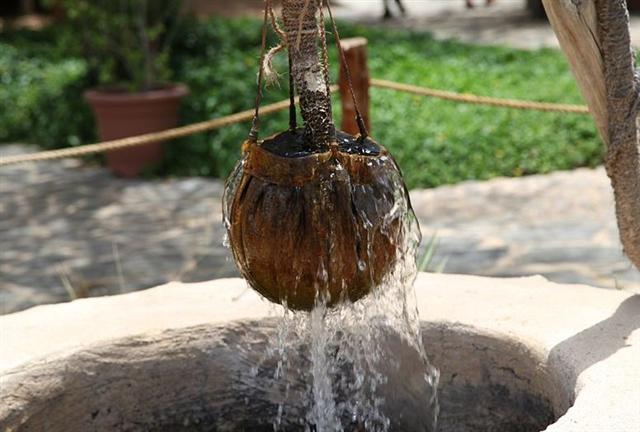 |
|
March 8 (432) |
9 (80 + 353) |
10 |
11 (435 - 365 = 70) |
12 |
13 (254 + 183) |
Here fresh water was needed;
Need-water. Because the Full Moon
was at the Empty Crater with the
Dry Square
of the Thirsty Raven (Corvus) not far ahead:
... There was no
water in the village. The lakes and
rivers were dry. Raven and Crow, two
young girls who were having their first
menstrual courses, were told to go and
draw water from the ocean. Finding the
journey too long, Raven decided just to
urinate into her basket-bucket. She
decieved no one and was severly scolded.
Crow returned much later but with
drinking water. As a punishment, Raven
was condemned never to find water in the
summer; only in winter would she find
something to drink. For that reason the
Raven never drinks during the hot
months; she speaks with a raucous voice
because of her dry throat ...
... the bird, being
sent with a cup for water, loitered at a
fig-tree till the fruit became ripe, and
then returned to the god with a
water-snake in his claws and a lie in
his mouth, alleging the snake to have
been the cause of the delay. In
punishment he was forever fixed in the
sky with the Cup and the Snake; and, we
may infer, doomed to everlasting thirst
by the guardianship of the Hydra over
the Cup and its contents. From all this
came other poetical names for our Corvus
- Avis Ficarius, the Fig Bird;
and Emansor, one who stays beyond
his time; and a belief, in early
folk-lore, that this alone among birds
did not carry water to its young
...
Several
parallel texts confirm how important
this place was.
 |
 |
 |
 |
|
Eb5-10 (326 + 159 = 485) |
Eb5-11 |
Eb5-12 (161) |
Eb5-13 |
|
kua tu te
Ao |
te
rima kua haga i te henua
kaoa o te heke |
te henua - te kiore |
|
Ao.
Large dance paddle. 1. Command, power, mandate,
reign: tagata ao, person in power, in
command, ruler. 2. Dusk, nightfall. 3. Ao nui,
midnight. 4. Ao popohaga, the hours
between midnight and dawn. Aô, to serve
(food); ku-âo-á te kai i ruga i te kokohu,
the food is served on a platter. Vanaga. 1.
Authority, kingdom, dignity, government, reign (aho);
topa kia ia te ao, reign; hakatopa ki te
ao, to confer rank; ao ariki, royalty;
ka tu tokoe aho, thy kingdom come. PS Mgv.:
ao, government, reign. Mq.: ao,
government, reign, command. Sa.: ao, a title
of chiefly dignity; aoao, excellent,
surpassing, supreme. 2. Spoon; ao oone,
shovel. 3. Dancing club T. 3. Aonui (ao-nui
2), midnight. 4. Pau.: ao, the world. Mgv.:
ao, id. Ta.: ao, id. Mq.: aomaama,
id. Ma.: ao, id. 5. Pau.: ao, happy,
prosperity. Mgv.: ao, tranquil conscience.
Ta.: ao, happiness. 6. Mgv.: ao,
cloud, mist. Ta.: ao, id. Mq.: ao, id.
Sa.: ao, cloud. Ma.: ao, id. 7. Mgv.:
ao, hibiscus. 8. Ta.: ao, day. Mq.:
ao, day from dawn to dark. Sa.: ao, id.
Ma.: ao, id. 9. Ta.: ao, a bird. Ha.:
ao, id. 10. Mq.: ao, respiration,
breath. Ha.: aho, breath. 11. Mq.: ao,
to collect with hand or net. Sa.: ao, to
gather. Ma.: ao, to collect. Ta.: aoaia,
to collect food and other things with care.
Churchill.
Heke. (Heke),
hakaheke, to pull down, to overthrow. Mgv.:
akaeke, to overthrow, to vanquish; heke,
to fall down, to fall to pieces: akaheke;
akahekeheke, to demolish. Mq.: heke, to
crumble, to fall down; hakaheke, to demolish,
to pull down. Churchill. Kai heke,
hakaheke, to deflower.
Kahukahu o heke, an octopus hiding in his
ink. Mq.: ve'eve'e
'tentacules du heke'. Barthel 2. Pau.:
Heke, to purge. Mgv.: heke-toto,
hemorrhage. Ta.: hee, to purge. Mq.: heke,
to drip. Ma.: heke, id. Pau.: Hekeheke,
elephantiasis. Ta.: feefee, id. Mq.: fefe,
id. Sa.: fe'efe'e, id. Mgv.: Heke,
eke, octopus. Ta.: fee, id. Mq.: heke,
feke, fee, id. Sa.: fe'e, id.
Ma.: wheke, id. Ta.: Hee, to slide, to
swim. Sa.: se'e, to slide, to shoot the
breakers. Ha.: hee, id. Mq.: Hee oto,
to cut. Sa.: sele, id. Ha.: helehele,
id. Churchill. Ma.: 1. Migrate. Islands of History.
2. Rafter. Starzecka. |
|
VISIBLE CLOSE TO
THE FULL MOON: |
|
JULY 10 (191) |
11 |
12 |
13 |
|
Sept 12 (255) |
13 |
14 |
15 |
|
θ Crateris (175.0),
υ
Leonis (175.2),
ω
Virginis (175.3),
ι
Crateris (175.5) |
ο Hydrae (176.1) |
ζ Crateris, ξ Virginis
(177.0),
λ
Muscae (177.1),
ν
Virginis (177.2),
μ
Muscae (177.8) |
Al Sarfah-10 (Turn)
/
Uttara Phalguni-12 (Second
Reddish One)
/
Zibbat A.-16 (Tail of the
Lion) / Shēpu-arkū sha-A-17
(Hind Leg of the Lion)
93 Leonis (178.0),
DENEBOLA = β Leonis
(178.3),
ALARAPH (Unarmed) = β
Virginis
(178.6) |
|
THE SUN: |
|
March 14 (365 / 5) → π |
15 (31 + 28 + 15 = 74) |
16 (365 + 75 = 440) |
17 (441 = 80 + 361)) |
|
Λ Piscium (358.0),
MANUS CATENATA = ι
Andromedae
(358.1), θ Phoenicis, ALRAI = γ Cephei (358.4),
κ Andromedae (358.7)
*358.4 - *41.4 = *317.0 |
ω Aquarii (359.2),
78 Pegasi
(359.5) |
ψ Andromedae (360.1),
σ Phoenicis (360.4)
*360.4 - *41.4 = *319.0 |
γ¹ Oct. (361.4),
φ Pegasi
(361.7)
*361.4 - *41.4 = *320.0 |
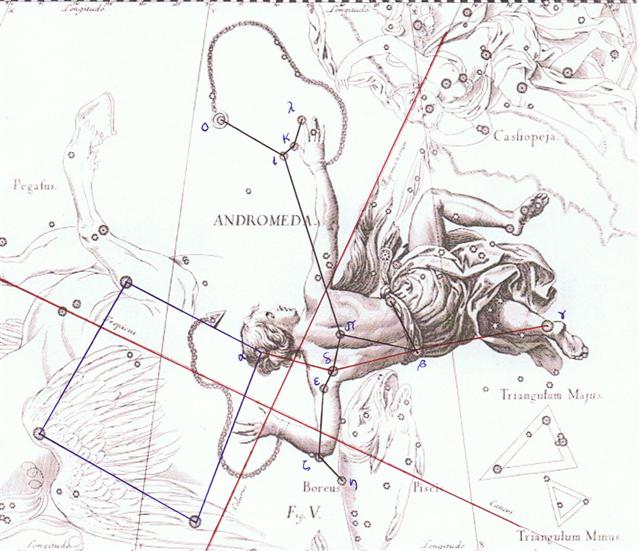 |
Here the Sun was at the Woman in Chains, probably
illustrating how Mother Nature at this place was not moving
at all and
acting as if dead.
The star watchers on Easter Island on the other hand
would simultaneously have seen the
Full Moon at the beginning of the Summer Maid,
who was so fully alive as to having taking over command from the Lion:

... Hamiora Pio once spoke
as follows to the writer: 'Friend! Let me tell of
the offspring of Tangaroa-akiukiu, whose two
daughters were Hine-raumati (the Summer Maid
- personified form of summer) and Hine-takurua
(the Winter Maid - personification of winter), both
of whom where taken to wife by the sun ... Now,
these women had different homes. Hine-takurua
lived with her elder Tangaroa (a sea being -
origin and personified form of fish). Her labours
were connected with Tangaroa - that is, with
fish. Hine-raumati dwelt on land, where she
cultivated food products, and attended to the taking
of game and forest products, all such things
connected with Tane ...
... When this tremendous task had
been accomplished Atea took a third husband,
Fa'a-hotu, Make Fruitful. Then occurred a
curious event. Whether Atea had wearied of
bringing forth offspring we are not told, but
certain it is that Atea and her husband
Fa'a-hotu exchanged sexes. Then the [male] eyes
of Atea glanced down at those of his wife
Hotu and they begat Ru. It was this Ru
who explored the whole earth and divided it into
north, south, east, and west ...
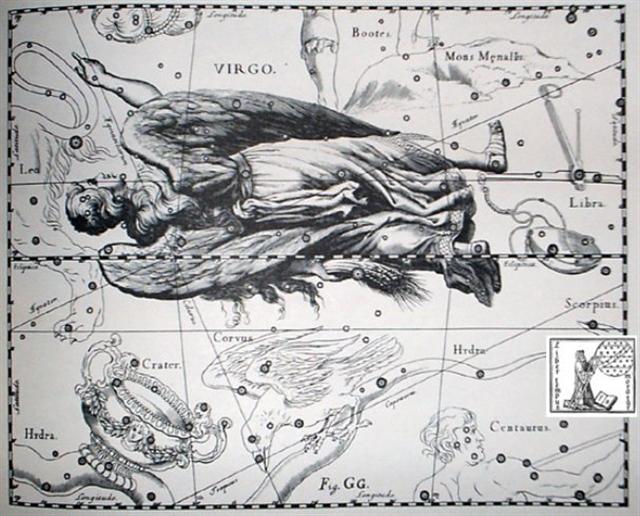
|



.jpg)


.jpg)




